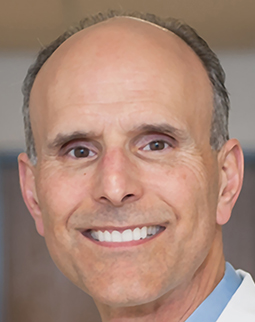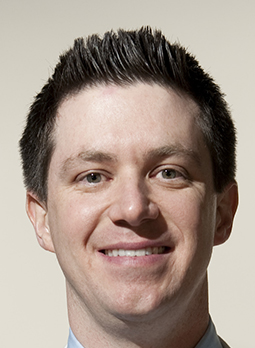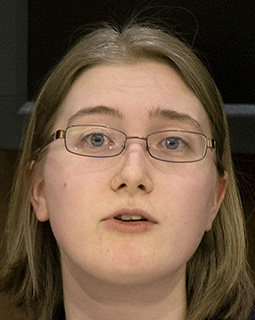Almost a decade ago, Dr. George Delgado received a call from someone doing sidewalk counseling outside of an abortion clinic in El Paso, Texas. The counselor had met a woman who had taken the first pill to begin a medication abortion and was having feelings of regret.
Delgado was asked if there was anything that could be done to reverse effects of the medication mifepristone, which blocks the hormone progesterone needed to maintain a pregnancy.
“I had never heard of anyone trying to reverse this,” said Delgado, a Catholic family medicine doctor in San Diego County, Calif. What he didn’t know at the time was that another physician, Dr. Matthew Harrison, several years before had helped a woman reverse an abortion using progesterone injections to counteract the effects of mifepristone. Delgado worked with a doctor in El Paso to prescribe the woman progesterone, and she went on to deliver a healthy, full-term baby.
 Dr. DelgadoDelgado already had experience with using progesterone to help prevent miscarriages. Progesterone, he noted, has been used safely in pregnancy for over 40 years. He studied under Catholic OB/GYN Dr. Thomas Hilgers, who founded the St. Pope Paul VI Institute for the Study of Human Reproduction in Omaha, Neb. Delgado is certified in NaPro Technology, the medical component of the Creighton Model FertilityCare System, a natural fertility tracking system developed by Hilgers and others.
Dr. DelgadoDelgado already had experience with using progesterone to help prevent miscarriages. Progesterone, he noted, has been used safely in pregnancy for over 40 years. He studied under Catholic OB/GYN Dr. Thomas Hilgers, who founded the St. Pope Paul VI Institute for the Study of Human Reproduction in Omaha, Neb. Delgado is certified in NaPro Technology, the medical component of the Creighton Model FertilityCare System, a natural fertility tracking system developed by Hilgers and others.
Others heard about Delgado’s abortion reversal and began contacting him for advice. Within a few years, he established a website and hotline called Abortion Pill Reversal and began recruiting volunteer doctors, nurse practitioners and midwives across the country who could help patients who wanted to undo the effects of mifepristone.
Earlier this year, pro-life organization Heartbeat International took over operation of the program and rebranded it as Abortion Pill Rescue. More than 500 medical professionals are in a network of providers, which includes albout 80 pregnancy help organizations. Delgado serves as the program’s medical director. He also recently founded Steno Institute, which furthers research on abortion pill reversal.
Since 2012, there have been more than 500 reported cases of babies being born after administering the abortion pill reversal protocol, according to Heartbeat International.
Delgado stressed that abortion reversal can only be attempted with those who have taken only mifepristone. The second step in a medication abortion is the use of misoprostol, which softens a woman’s cervix and induces contractions to begin labor. Once that has been taken, it’s generally too late to stop the abortion from taking place.
Earlier this year, he published an article with several other doctors, in which they looked at 261 successful mifepristone reversals. They found that intramuscular progesterone and high dose oral progesterone were the most effective, with reversal rates of 64 percent and 68 percent, respectively. They also concluded that was significantly better than the 25 percent survival when no treatment is offered. There also was no increased risk of birth defects or preterm births.
Feeling regret
 Dr. PuthoffDr. Gavin Puthoff, a Catholic OB/GYN, is one of several St. Louis doctors who volunteer their services with Abortion Pill Rescue. Puthoff met Delgado about a decade ago as a medical student and felt called to help. He’s seen two patients through Abortion Pill Rescue since 2015. Both of them received mifepristone and misoprostol through Planned Parenthood, but had only taken the first dose.
Dr. PuthoffDr. Gavin Puthoff, a Catholic OB/GYN, is one of several St. Louis doctors who volunteer their services with Abortion Pill Rescue. Puthoff met Delgado about a decade ago as a medical student and felt called to help. He’s seen two patients through Abortion Pill Rescue since 2015. Both of them received mifepristone and misoprostol through Planned Parenthood, but had only taken the first dose.
In both cases, Puthoff noted there was some form of external pressure for the woman to have an abortion. “It could be a boyfriend, a parent,” he said. “They feel conflicted about doing it to begin with.”
Patients who are referred to him come in for an ultrasound. “We want to give them a glimmer of hope that there is a baby there,” he said. One of the patients heard the ultrasound technician at the abortion clinic she initially visited mention that she was carrying twins. “Somehow it became more personal for her,” Puthoff said. “She said, ‘Wow — I have two babies.’ Somehow it humanized it more for her.” She went on to deliver two healthy babies.
Puthoff also commends the women for their decision. “For them to contact the hotline and then show up to a physician’s office, it’s nothing short of heroic.”
Dr. Cara Buskmiller, a fourth-year Catholic OB/GYN resident at Saint Louis University, has studied the abortion reversal protocol under Dr. Patrick Yeung, another St. Louis-based Catholic OB/GYN who has participated in the Abortion Pill Rescue program for the last several years.
Buskmiller, who anticipated a presentation on the topic at a Lutherans for Life conference in St. Louis Oct. 13, said she has a special interest in the research Delgado and others are doing to measure the success of administering protegsterone to reverse the effects of mifepristone.
Abortion reversal is “wonderful for women and for choice,” she said. “If people say they are really pro-choice, then this should be a choice we offer to women. There needs to be more rigorous study, and that’s being done now.”
 Dr. BuskmillerCriticism
Dr. BuskmillerCriticism
Delgado has faced some criticism within the medical community. The American Congress of Obstetricians and Gynecologists in 2017 issued a statement that described claims of reversal treatment as “not based on science and do not meet clinical standards.”
ACOG, as well as the Guttmacher Institute, which originally was founded as a research arm of Planned Parenthood and promotes advancement of reproduction rights, said Delgado’s research “did not conform to minimum standards for medical research.”
Delgado, however, noted that his most recent research article in 2018 included a historic control group to compare to the women who were being treated with progesterone. Delgado noted that the reason for not using a standard control group was because those women would not have received the progesterone treatment, as the protocol would require. That would present a moral dilemma, he said.
The American Association of Pro-Life Obstetricians and Gynecologists support abortion pill reversal, and dispute the accusation that the procedure is “junk science.”
“The use of progesterone to counteract mifepristone, a synthetic anti-progesterone steroid, is a logical extension of decades of therapies for pregnancy loss caused by progesterone deficiency,” according to its statement. “Research studies have shown that use of progesterone reverses the effects of mifepristone blockage, and progesterone has been used safely for decades in pregnant women. Many women are ambivalent about their abortion decision, and there is increasing evidence that many abortions are coerced. These women welcome the opportunity to reverse their initial decision, and should be given accurate information about this process.”
Delgado said he, too, has seen a significant number of women who have experienced some sort of coercion to have an abortion, either by the father of the baby or in some cases by the woman’s parents. Once they seek information on getting an abortion, they become “victims of the medication abortion complex,” he said.
“As a physician, God has given me gifts, talents and knowledge, and I see this as giving them a second chance at choice,” he said.
>> How does a medication abortion work?
Mifepristone, also
known as RU-486, is the first pill taken in a medication abortion. It
blocks progesterone’s actions by binding to progesterone receptors in
the uterus and the placenta. Progesterone is the natural hormone in a
woman’s body that is necessary to nurture and sustain a pregnancy.
Misoprostol,
also branded as Cytotec, is the second medication taken in a medication
abortion, generally 24 to 48 hours after mifepristone. The medication
softens a woman’s cervix and begins contractions to induce the labor
process.
The Guttmacher Institute reports that medication abortion
accounted for nearly one-third (31 percent) of all nonhospital
abortions in the United States in 2014. Since 2004, states have enacted
several types of restrictions targeting medication abortion. In
Missouri, medication abortion can only be provided by a licensed
physician. State law also requires that a prescribing clinician must be
in the physical presence of the patient.
Abortion reversals
• Abortion
Pill Rescue is a program of Heartbeat International. In addition to
providing medical assistance in reversing a medication abortion, the
organization also provides information on resources for women who have
chosen life for their babies. For more information, visit www.abortionpillreversal.com.
•
In 2015, Arkansas became the first state to implement mandatory
abortion reversal counseling; Arizona and South Dakota subsequently
adopted similar laws. Arizona and South Dakota also have laws requiring
counseling on medication abortion reversal.